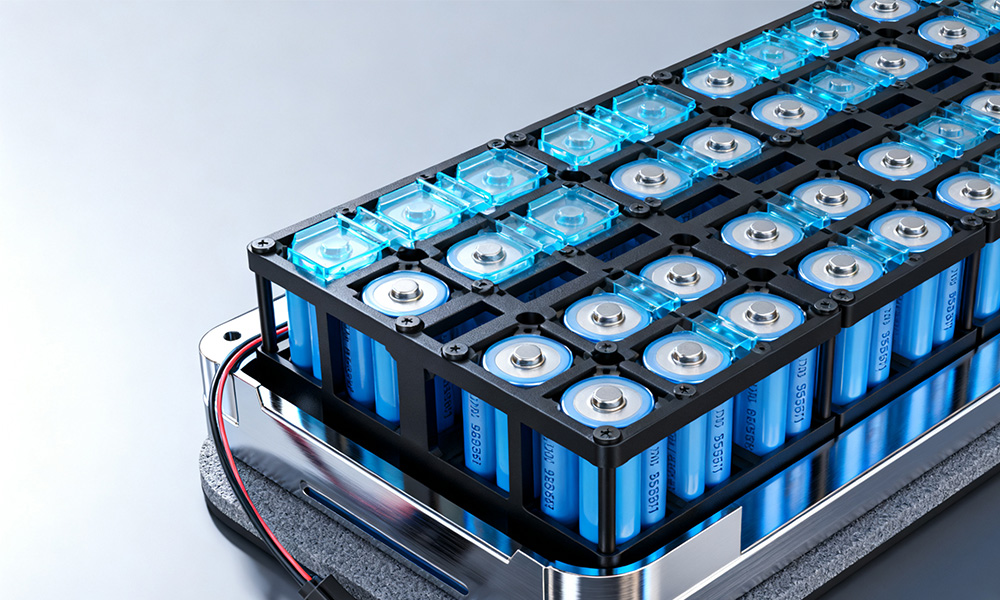What’s 18650 E-bike Battery Pack?
If you ride e-bikes, or are thinking about a DIY upgrade, you’ve probably run into the term 18650 ebike battery pack. So, what’s that exactly? An 18650 cell is basically a small cylinder, about 18mm wide and 65mm long, with a voltage around 3.6–3.7V and capacity usually between 2900mAh and 3600mAh.
Why are these cells so popular in e-bikes? They pack a lot of energy for their size, they’re pretty stable, and honestly, a little bump or scratch usually won’t ruin them. Still, don’t go throwing them around—treat them with respect and they’ll serve you well.
Battery Pack Design and How to Choose One
One 18650 cell alone won’t do much—you need a bunch connected in series and parallel to make a real pack. Some common setups you’ll see:
- 10s3p: 10 cells in series, 3 in parallel. Works for 36V systems.
- 13s4p: 13 in series, 4 in parallel. Usually for 48V systems.
- 13s5p: Higher power setups.
A few practical points when choosing a pack:
- Capacity: Want to ride farther? Bigger is better.
- Discharge Rate: Powerful motors need cells that can actually handle the load.
- Quality: You don’t need to know brands, but better cells generally last longer and are safer.
DIY Battery Packs: Quick Reality Check

If you like tinkering, making your own 18650 pack can be rewarding—you control the capacity, voltage, and discharge limits. But there are some catches:
- Pros: Total control, you can customize it exactly how you like.
- Cons: One slip-up and you could short the pack or mess up the balance between cells. That’s dangerous.
Honestly, if you’re not 100% confident with battery tech, a pre-built pack is way safer. DIY is fun, but safety has to come first.
Some Common Pack Configurations
- 36V 8Ah pack: Perfect for low-power motors, cheaper, comes with basic BMS protection.
- 48V 11.6Ah pack: Higher capacity, good for long rides or stronger motors, includes BMS protection.
A quick tip: bigger isn’t always better. More capacity means more weight and bulk, and that can make your bike feel clunky. Pick something that fits your riding style and needs.
Safety and Maintenance Tips
Even solid 18650 cells need some love:
- Check them regularly: Watch out for swelling, leaks, or weird smells.
- Avoid overcharging or overdischarging: Using the right charger really helps battery life.
- Storage matters: Keep the pack cool, dry, and away from heat.
A personal habit: after each ride, I check the voltage and give the connectors a quick wipe. It’s small, but it actually helps the pack last longer.
Wrap-Up
The 18650 ebike battery pack might seem straightforward, but there’s more to it than meets the eye. Choosing the right design, capacity, and keeping it well-maintained makes a big difference. DIY can be rewarding if you know what you’re doing, but pre-built packs are convenient, safe, and reliable. Pick a pack that balances power, weight, and range, and you’ll enjoy smooth, hassle-free rides.
You May Like
-
18650 2200Mah 10S3P 36V 6.6Ah Electric Scooter Lithium Battery
-
18650 2600Mah 10S3P 36V 7.8ah Scooter Battery
-
18650 36V 5.2Ah Electric Bicyle Battery
-
1S2P 3.7V 1600mAh 14500 Lithium Battery
-
2000Mah 18650 Battery Cell 6Ah 36V Scooter Battery
-
21700 3.7V 4800mAh Rechargeable Lithium-Ion Battery
-
3.7V 21700 Rechargeable Lithium Battery Cells 5000mah
-
3.7V 5000mah 26650 Battery
-
32140 LiFePO4 Battery Cell 3.2V – 10000mAh / 15000mAh
-
32700 Lifepo4 3.2V 6000mah Lithium Battery
-
48V 15ah 720wh Ebike Battery
-
60V 21Ah 18650 16S7P E Bike Battery
-
Customized 48V-72V Triangle Ebike Lithium Battery Pack | 52V 30Ah















Leave a Reply